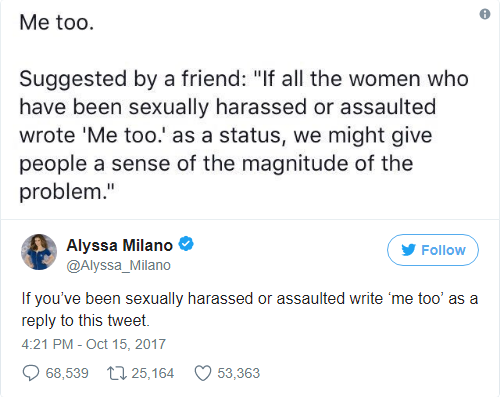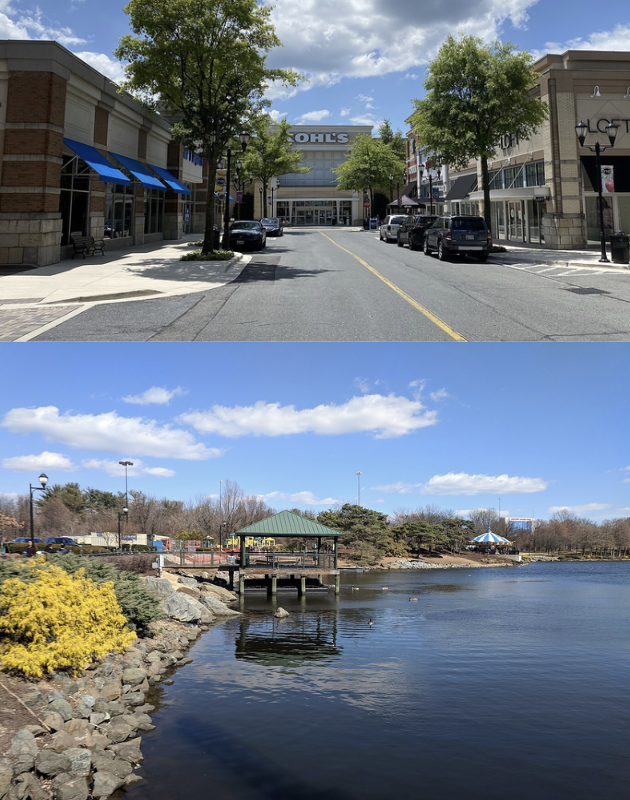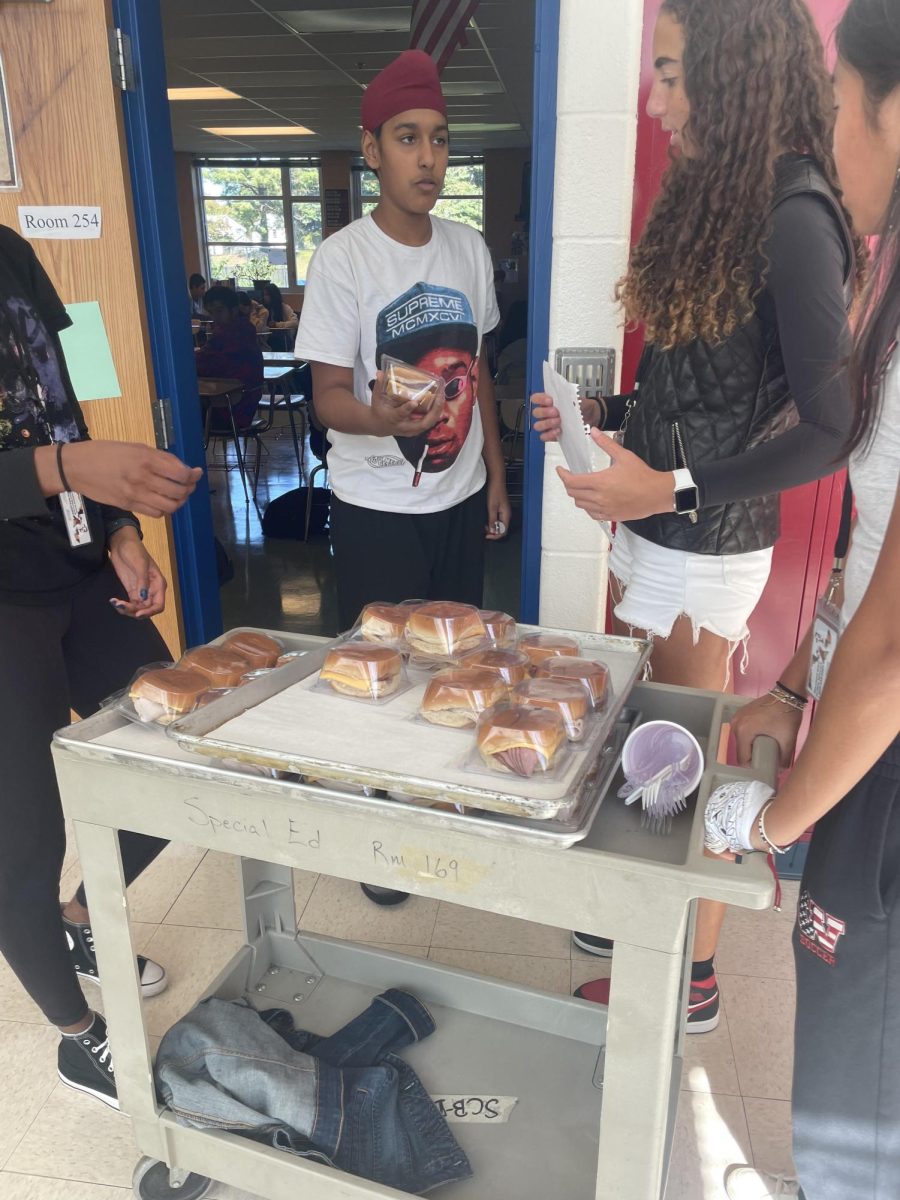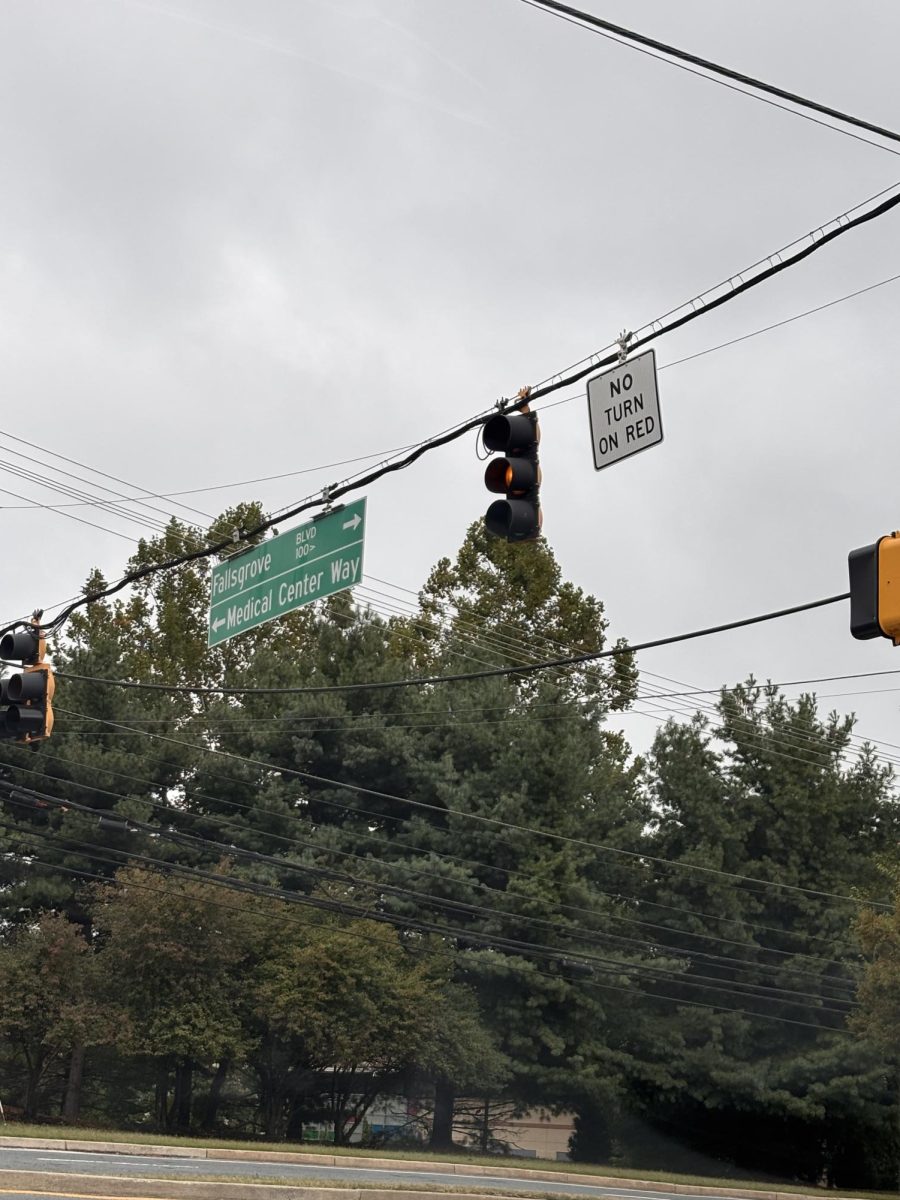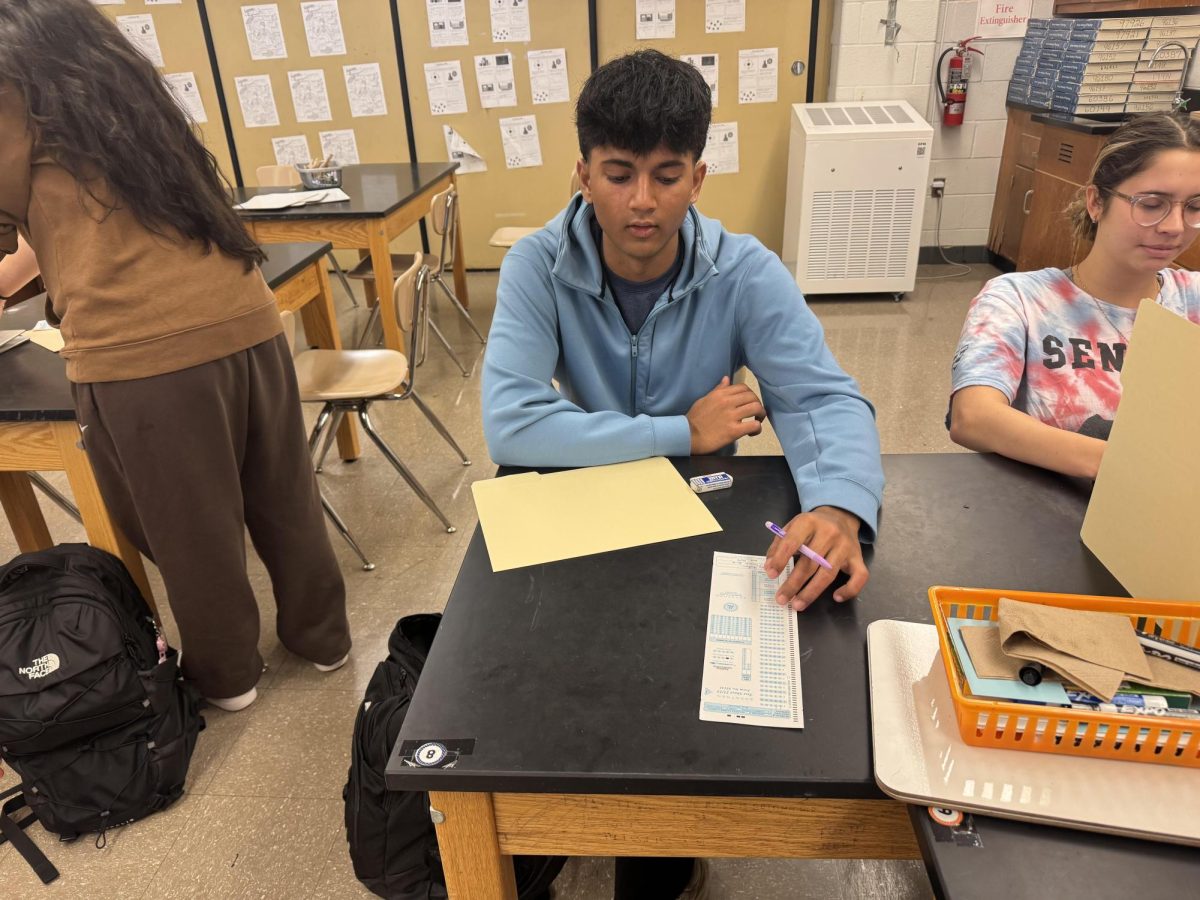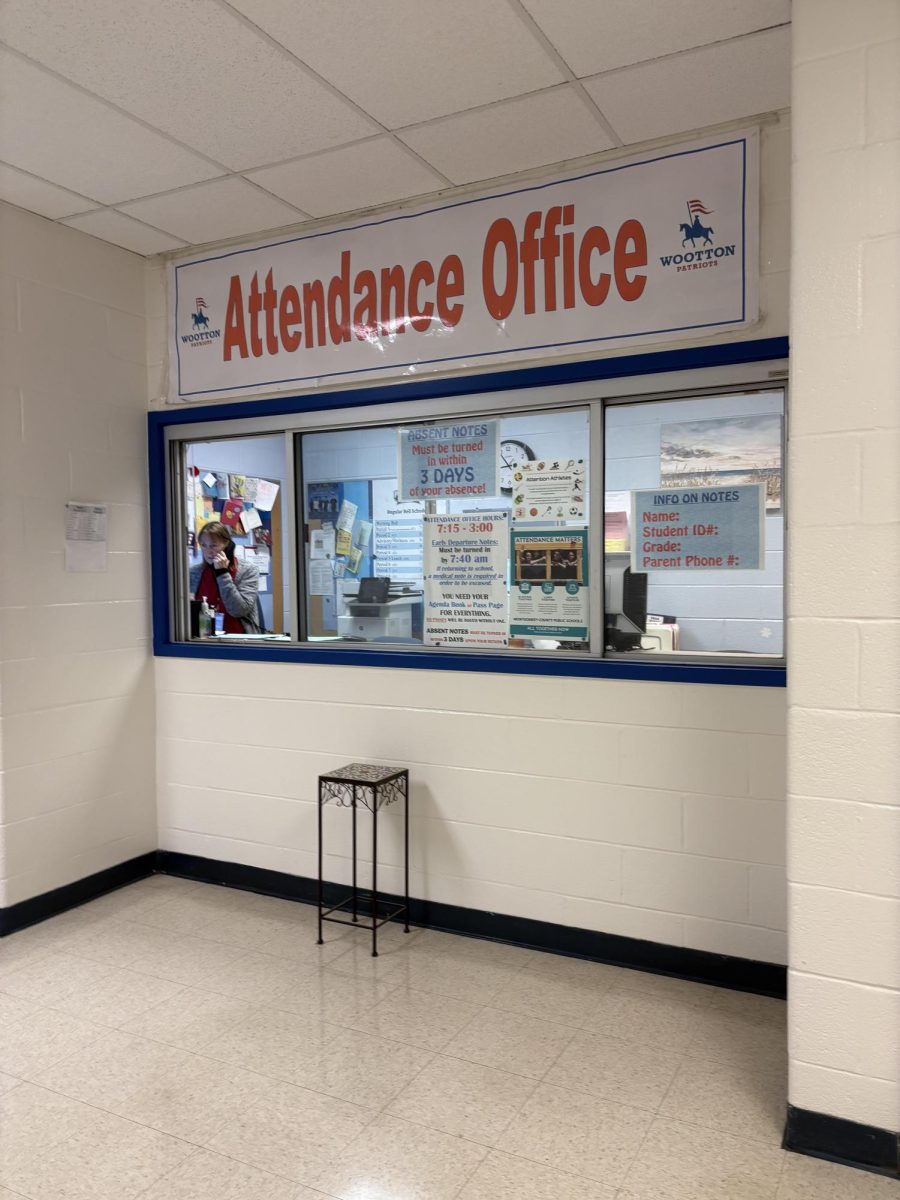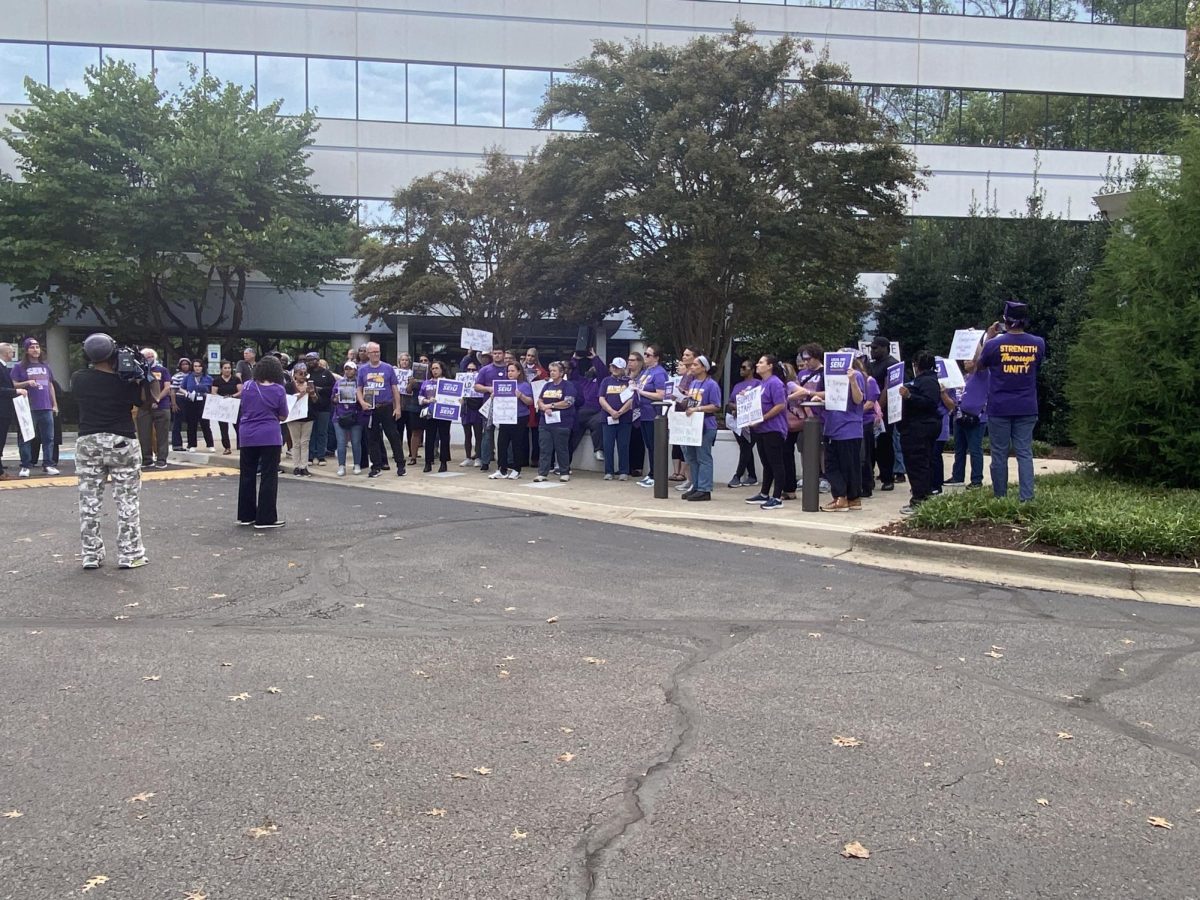The #MeToo Hashtag has been tweeted well over a million times in close to 90 different countries. #MeToo was broadly deployed when actress Alyssa Milano incited it with a tweet of her own on Oct. 15. The movement quickly took off among women as they shared stories of sexual harassment and sexual assault. In the first 24 hours, the hashtag was tweeted nearly half a million times.
Although the #MeToo campaign has only recently become popular, social activist and community organizer Tarana Burke coined the phrase “Me Too” on the MySpace social network in 2006 as part of a grassroots campaign. This phrase was created to promote empowerment through empathy among women of color who have experienced sexual abuse, particularly within underprivileged communities.
Burke, who is in the process of creating a documentary titled Me Too,has said she was inspired to use the phrase after being unable to respond to a 13-year-old girl who confided to her that she had been sexually assaulted. Burke later wished that she had simply told the girl, “me too.”
“Women have been afraid to speak out when they’ve been sexually assaulted and I think the #metoo movement gives women a way to express it alongside other victims so it’s less stigmatizing, while simultaneously bringing awareness to a growing problem in our society,” senior Hannah Bruckheim said.
After accusations against American film producer and former film studio executive Harvey Weinstein surfaced last month, actress Alyssa Milano encouraged spreading the phrase as part of an awareness campaign to show the scale of the problem tweeting: “If all the women who have been sexually harassed or assaulted wrote ‘Me too’ as a status, we might give people a sense of the magnitude of the problem.” Milano later attributed the phrase to Burke calling Burke’s story heartwarming and inspiring. “The hashtag has allowed many who haven’t felt safe about sharing their own experience about sexual assault a platform to speak,” junior and Project Mystic Club Secretary, Rachel Kerschenbaum said.
By Oct. 16, the hashtag had been used more than 200,000 times and tweeted more than 500,000 times. On Facebook, the hashtag was even more popular; amassing more than 12 million posts by 4.7 million people. Facebook later reported than 45 percent of users in the United States had a friend who had posted using the term. “While I think it is important that it is showing the sheer number of people it affects however I find it annoying that in 2017 we even need this movement,” senior Becca Korn said.
Tens of thousands of people replied to Milano’s original tweet, including more than 30 celebrities including actresses Viola Davis, Debra Messing, America Ferrera, Gabrielle Union and Reese Witherspoon.
But the hashtag and the sexual assault and harassment has not been limited to just women. Actors Terry Crews and James Van Der Beek have responded to the hashtag with their own experiences of harassment and abuse. Crews came out last month about his own sexual assault by a Hollywood executive. Recounting why he decided not to come out with his experience until now, he tweeted: “I decided not 2 take it further becuz I didn’t want 2b ostracized.”
Other men have responded by acknowledging past behaviors against women spawning the hashtag “#HowIWillChange.”
In addition to Hollywood, #MeToo declarations elicited discussion of sexual harassment and abuse in the music industry, sciences, academia and politics. Four female U.S. senators shared stories of sexual harassment Sunday on NBC’s “Meet the Press.” Claire McCaskill (D-Mo.), Mazie Hirono (D-Hawaii), Elizabeth Warren (D-Mass.) and Heidi Heitkamp (D-N.D.) told stories of crude comments by colleagues of co-workers trying to touch them. “The first women who started the #metoo campaign were incredibly brave. And they inspired the next wave. And in turn, they inspired the next wave and the next wave and the next wave. That’s how we make real change,” Warren said.
Maxwell Redding
Staff Writer


